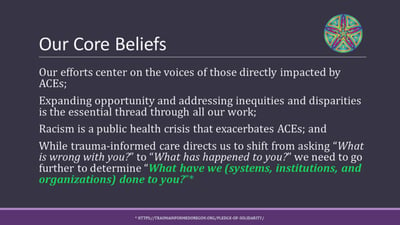2021 CGA Session Recap

The 2021 legislative session has ended, and many of the issues the Consortium supported and advocated for through testimony and outreach have been signed into law by the governor. With two excellent online options for government and policy news—the Connecticut Mirror and CT News Junkie—we’ve compiled some of their overall analysis as well as issue specific analysis related to our legislative agenda to help you stay up to date:
Special Briefing: Recapping This Year's Legislative Session
Key bills that passed and faltered during the 2021 legislative session
Winners and Losers of the 2021 Session
Additionally, we would like to highlight several new laws and funding shifts that align with our work and passed without much fanfare at the close of the session. As a member of the Governor’s Council on Women and Girls Health and Safety Subcommittee, we submitted written testimony in support of SB-761, which was merged into the recommendations of the Council. Public Act No. 21-49: An Act Concerning the Recommendations of the Governor's Council on Women and Girls amends state statute for the State Elections Enforcement Commission to permit expenditures for qualified candidate committees receiving grants from the fund childcare services.
As our colleague Emily Hoyle emphasized, “2.5 million women in the United States have left the work force since the beginning of the pandemic.This sudden and devastating decrease was triggered in part by the disproportionate growth in domestic and childcare responsibilities placed on women’s shoulders in the last year. This acute instance is well documented, but its severity is indicative of a larger disproportionality that existed before 2020. Despite huge gains in women's empowerment, childcare costs remain a major barrier to working mothers seeking to enhance their careers.
The Connecticut Women’s Consortium supports S.B. No. 761 and its importance for aspirational parents across the state. Here, we have an opportunity to empower parents to achieve their career and political goals and to lift up those who seek to better represent Connecticut’s working families. Let this Bill create a precedent for Connecticut’s dedication to ending the gender gap and promoting women out of professional obscurity.”

The Consortium is a co-founder of the Connecticut State Taskforce on ACEs and Resilience, and our small staff includes the president of the Connecticut Chapter of the National Association of Social Workers and the chair of the chapter’s Education and Legislative Action Network. Surrounded by activists, advocates, and community organizers, we see ourselves as agents of change. Our work during the legislative session supported the declaration of racism a public health crisis as well as the expansion of legislators’ understanding of a doula’s role and the impact of adverse childhood experiences. Additionally, we testified to the importance of data collection, of race, ethnicity, and language (REL) as well as lesbian, gay, bisexual, transgender, and queer youth.
Public Act No. 21-35: An Act Equalizing Comprehensive Access to Mental, Behavioral and Physical Health Care in Response to the Pandemic is a large bill which integrated language from many predecessors, including REL data collection. Testifying before the Public Health Committee, Kathleen Callahan explained, “We believe the collection of race, ethnicity, and language data is critical to identify and evaluate health disparities in access, treatment, and outcomes, inform targeted interventions, and support systemic change that addresses the issues and ensures health equity for all residents.
While health data defines Connecticut as one of the country’s healthiest states, a January 2020 report commissioned by the Connecticut Health Foundation highlights major race and ethnicity disparities whereby people of color are more likely living in poor health and – for black residents – dying younger.3 Socioeconomic factors play a role with accessibility but when analyzing the outcomes, the report also implicates disparate treatment within the care system as well as the physiological impact of racial trauma.
The COVID-19 pandemic has only worsened this health divide with people of color in Connecticut bearing a disproportionate burden of illness and death. Race, ethnicity, and age data are necessary during this time to ensure that resources are targeted to the hardest hit communities; considering data analysis to define “high risk” individual can address inequities. As the pandemic continues, data-driven decisions about the distribution of testing, contact tracing, and vaccine resources will be key in mitigating its toll.”
After the session closed on June 9, a brief special session convened the following week in which the budget implementer bill passed. This included an extension of Medicaid coverage for postpartum care for twelve months after birth to a woman otherwise eligible, a universal home visiting program, and additional funding for the Department of Mental Health and Addiction Services private providers and for New Haven Pride Center and True Colors to be used for LGBTQ+ youth direct services.
Reviewing our legislative priorities for 2021, we see progress and know there is hope and energy for continuing the movement toward an equity-based, trauma-responsive, and resilient Connecticut. There were critical, thoughtful discussions over issues related to these priorities and several resulted in new laws. We are grateful for our diverse statewide networks and relationships with thought leaders as we learn from them and add our voices.
Subscribe for updates
_.webp)



